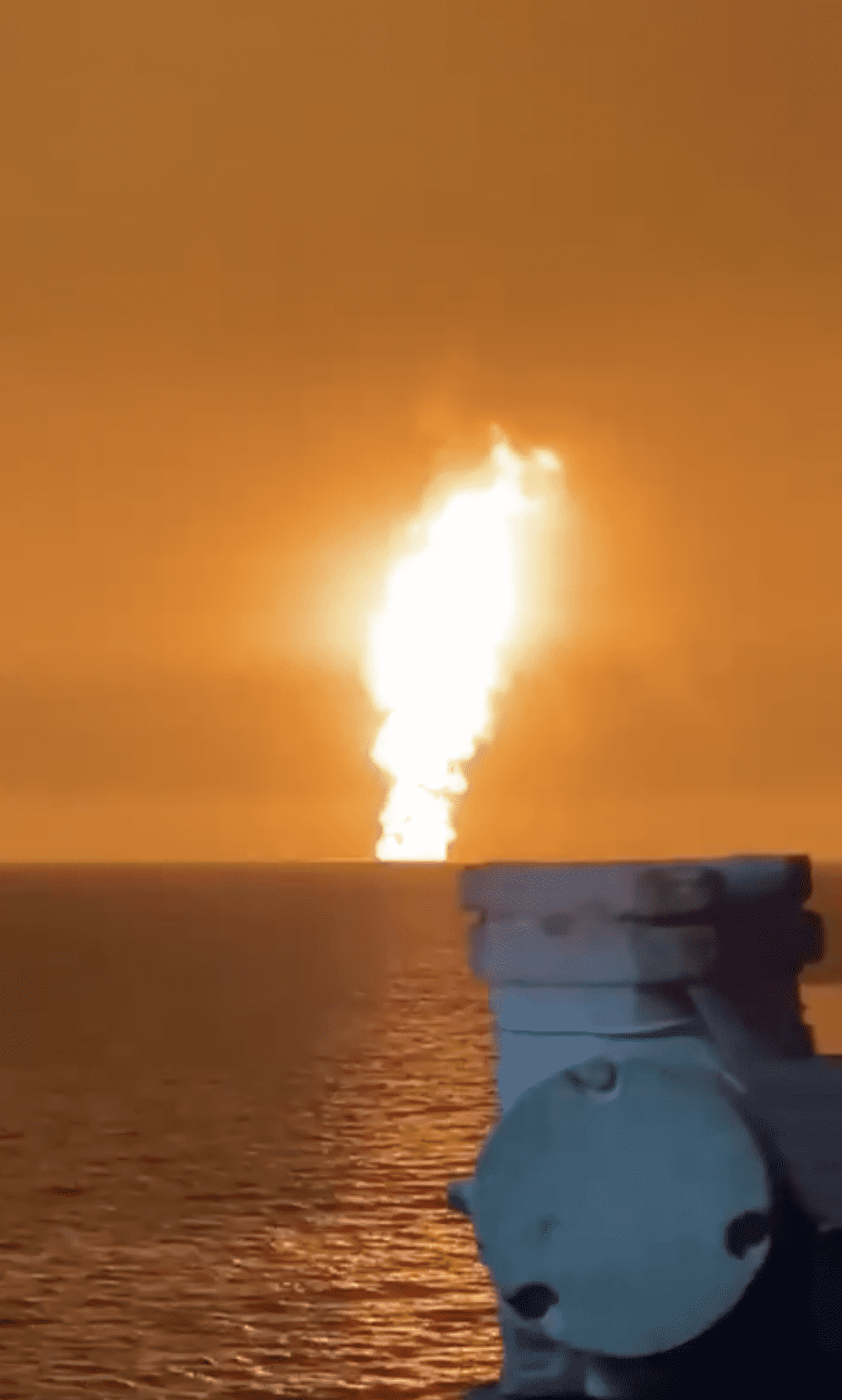What caused Caspian Sea explosion? Large fireball seen day after Gulf of Mexico's 'eye of fire'

Days after the "portal to hell" in the Gulf of Mexico, a large explosion has been reported in the Caspian Sea. Social media users in Baku, Azerbaijan took to Twitter and Facebook on July 4 to share videos and images of the explosion, that occurred near the oil fields in the country.
Due to its proximity to extraction sites, the explosion prompted renewed calls to stop the extraction of fossil fuelseing deadlier and deadlier natural disasters, which can be directly linked to our use of fossil fuels. President Joe Biden has tapped John Kerry to lead his climate change strategy, which so far has had mixed results. In the meantime, hurricane season is upon us, with 2021 expected to above-average, but not as bad as 2020. Weeks ago, Tropical Storm Claudette led to a deadly tornado in Southern Alabama, injuring at least 20.
READ MORE
These events, in turn, have led to greater calls to shift to renewable energy. However, so far there seems to be little political will for doing so. As a result, fossil fuel extraction continues to gather pace, leading to disasters like the one in the Gulf of Mexico on July 3. Now, a similar situation has emerged in the Caspian Sea, worrying plenty of people about the future.

What caused the explosion?
Late on July 4, social media users in the European nation of Azerbaijan captured the massive explosion on camera. The sky turned orange as a large fireball rose up over the horizon. According to reports, the explosion occurred near the offshore oil fields, leading many to believe it was another case of extraction gone wrong. According to state oil firm SOCAR, preliminary reports indicated that the explosion was caused by a mud volcano.
Reportedly, the region is filled with many underground volcanoes that spew both mud and flammable gas, since they are formed by methane attempting to escape the Earth's crust. Azerbaijan’s Ministry of Ecology and Natural Resources also confirmed that a volcano is most likely to blame and is currently investigating. Gurban Yetirmishli, the country’s seismological service director, told local news agency APA, "This is a sign of a mud volcano. There are many mud volcanoes in the Caspian Sea, one of which erupted."
SOCAR spokesman Ibrahim Ahmadov told APA that the blast took place about 6 miles from the Umid gas field and that no oil platforms were damaged. The explosion took place about 45 miles from the capital city of Baku but was clearly visible from there. However, many social media users refused to accept a volcano was the cause and used the incident to continue calling for a ban on fossil fuels.

'Move away from fossil fuels' begs Twitter
A video of the incident went viral on social media, quickly prompting a slew of memes, as well as slamming of climate change deniers. Rosanna Arquette tweeted, "The Gulf of Mexico and now the Caspian Sea are on fire from exploding oil rigs devastating the environment . End Fossil fuel dependence now." Another account slammed the official explanation, tweeting, "“Mud volcano”?! Now you’re just making shit up."
The Gulf of Mexico and now the Caspian Sea are on fire from exploding oil rigs devastating the environment . End Fossil fuel dependence now.
— ✌🏼rosanna arquette (@RoArquette) July 4, 2021
“Mud volcano”?!
— God (@TheTweetOfGod) July 4, 2021
Now you’re just making shit up. https://t.co/lrleAGgLGs
"“Eye of fire” in the Gulf of Mexico. Now an explosion in the Caspian Sea. The fossil fuel industry is having a weekend," one person tweeted. Another joked, "Not to be outdone, the Caspian Sea responds to the Gulf of Mexico with a mud volcano. And I need a drink."
“Eye of fire” in the Gulf of Mexico. Now an explosion in the Caspian Sea. The fossil fuel industry is having a weekend. https://t.co/Xkup9pbbn3
— Esther Ciammachilli #WeMakeWAMU (@EstherCinDC) July 4, 2021
Not to be outdone, the Caspian Sea responds to the Gulf of Mexico with a mud volcano. And I need a drink. https://t.co/UKHlcekD5P
— Benjamin Gorman 🍎 (@teachergorman) July 4, 2021
One person tweeted, "Gulf of Mexico: on fire Caspian Sea: Hold my oily mushroom cloud." Another said, "Mud Volcano is a good excuse for yet another gas explosion in the Caspian Sea only a day after Gulf of Mexico looking like a portal to hellfire. Move away from fossil fuels."
Gulf of Mexico: on fire
— BrooklynDad_Defiant! (@mmpadellan) July 4, 2021
Caspian Sea: Hold my oily mushroom cloud https://t.co/yPcZ9M7EEw
Mud Volcano is a good excuse for yet another gas explosion in the Caspian Sea only a day after Gulf of Mexico looking like a portal to hellfire. Move away from fossil fuels. https://t.co/vTr7SwjAdC
— Ricky Davila (@TheRickyDavila) July 4, 2021
In 2007, the nation began protecting the volcanoes as a "natural reserve", limiting construction, destruction, and most other works around them. An Azerbaijan website noted that of the nearly 800 mud volcanoes globally, over half are located in the nation and the Caspian Sea. Today, the volcanoes on land act as a tourist hub for the nation, drawing thousands of people yearly.










